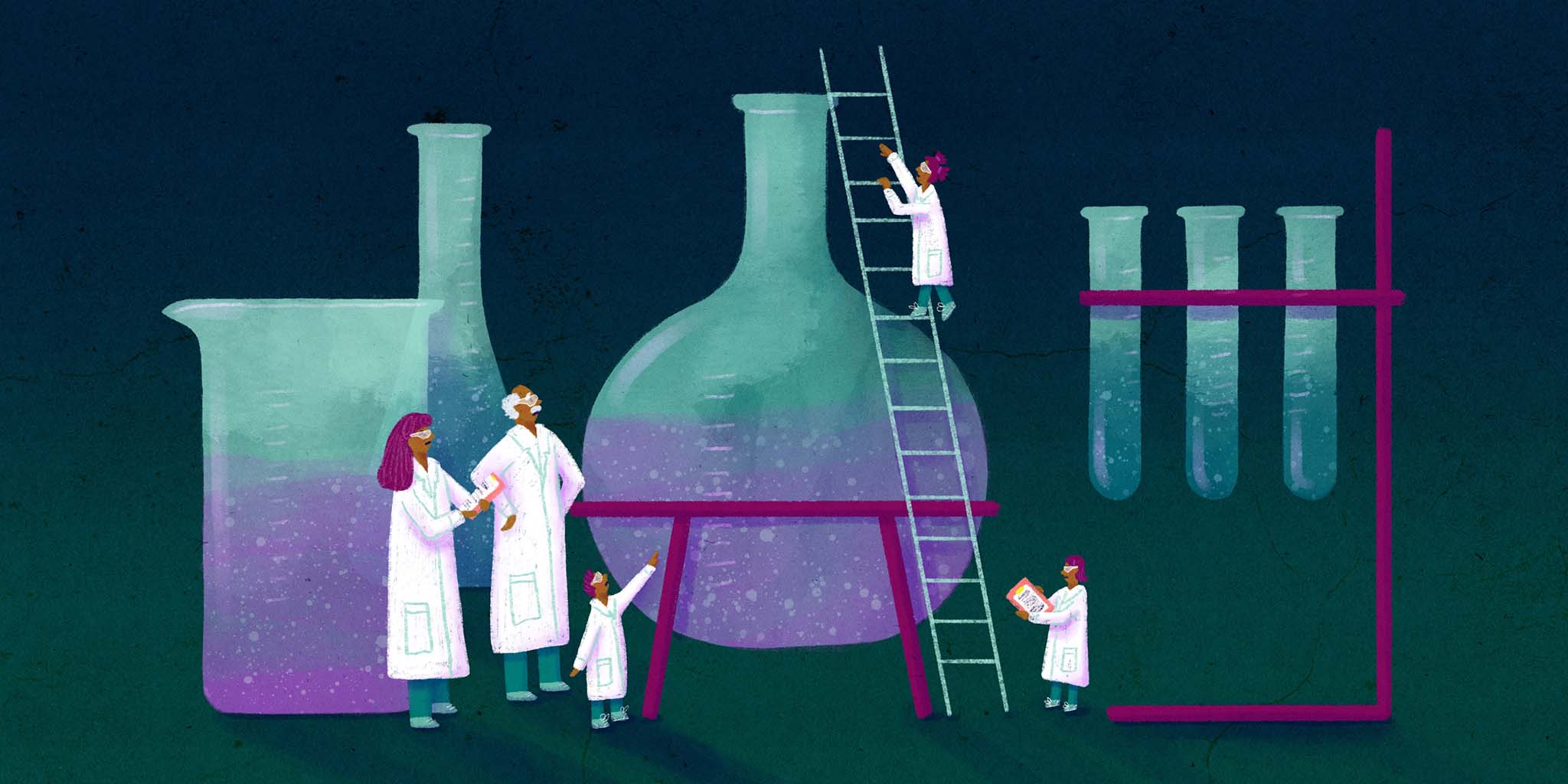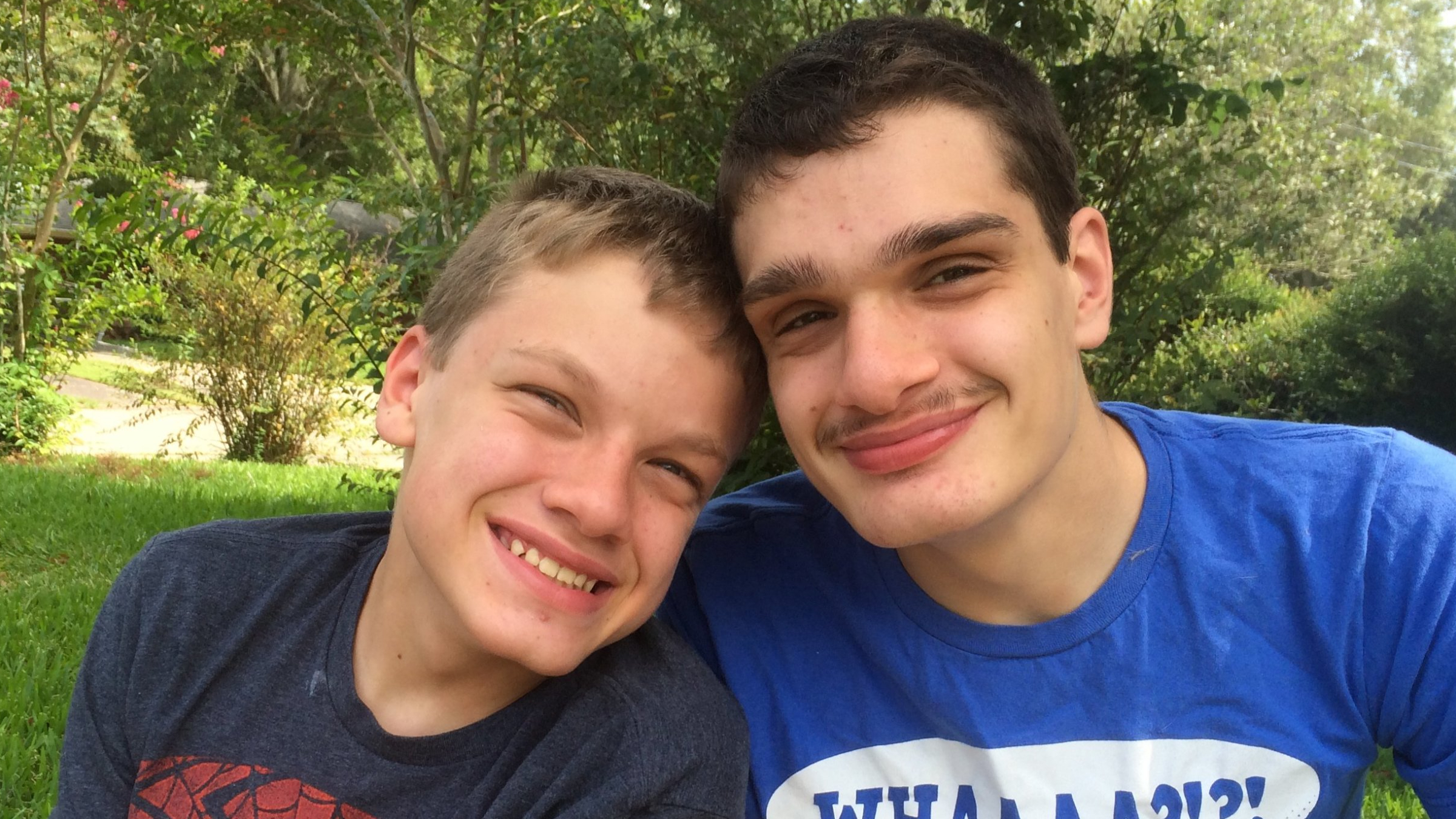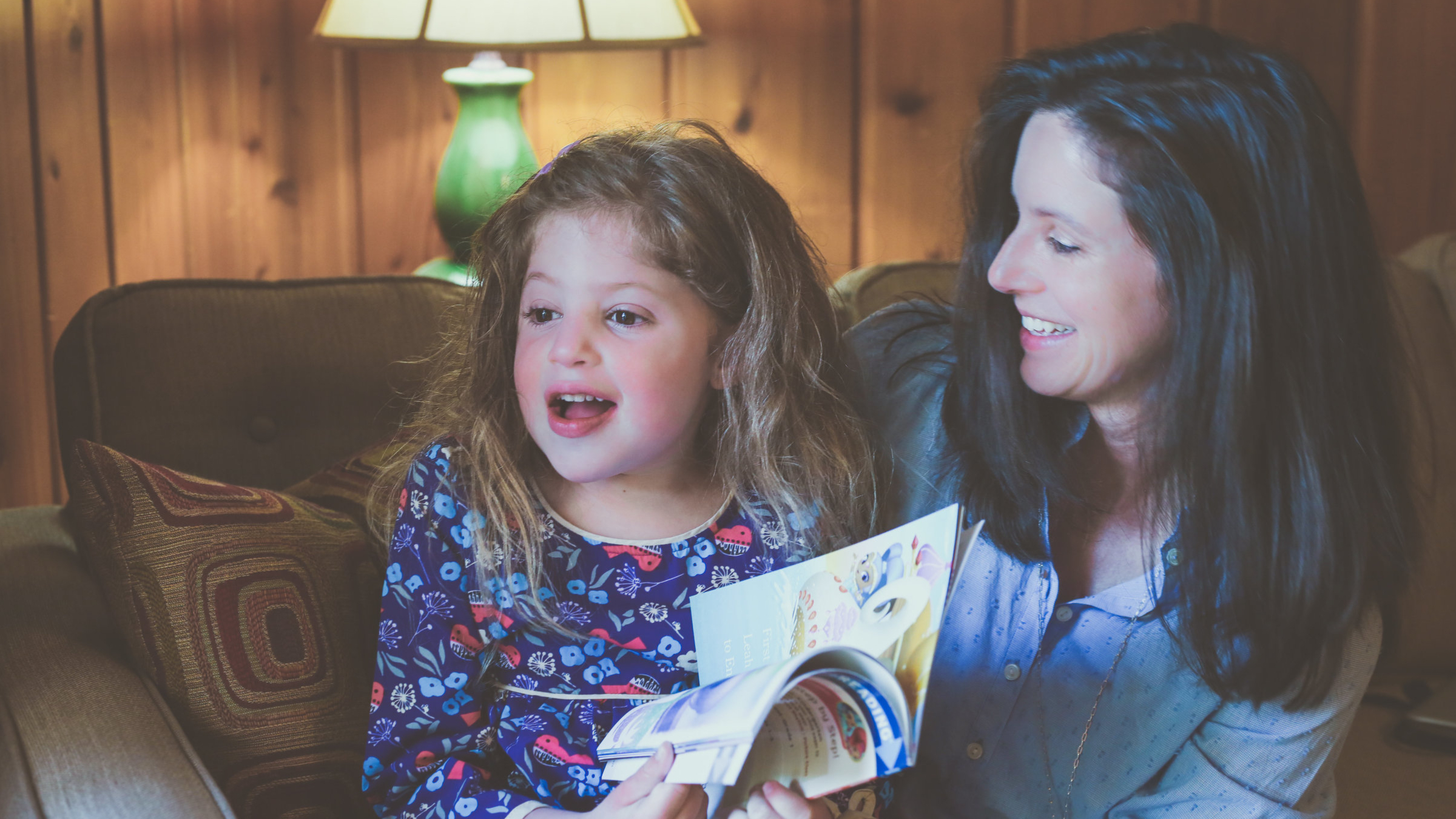
Families raised millions and handed rare disease therapies off to biotechs. But companies have backed out
When Julia Taravella’s two sons were diagnosed with an ultra-rare disease, she did something extraordinary but not uncommon among parents like her: She formed a group that raised $1.2 million to try and find a treatment.
“Without a therapy, my sons will die,” Taravella said.
The money helped launch work on a potential gene therapy at the University of North Carolina, which was then handed off to a New York-based company called Neurogene.
But what sounds like a victory propelled by a parent’s perseverance is being overshadowed by a lesser-known but increasingly common trend: Drugmakers are shelving many of those family-funded therapies.
In 2022, almost four years after Neurogene took over, the company stopped the work. The program is back with the University of North Carolina, and Taravella and other parents are trying to raise another $2.3 million for a clinical trial.
In the last 16 months, drugmakers have canceled or paused development on 26 rare disease programs that were financially supported by patient groups, based on an Endpoints News review of public filings and news reports, which was cross-referenced with patient groups.
The shelved therapies target everything from seizures to intellectual disability to brain diseases that rob children of their abilities and then kill them at a young age. The list, while extensive, is limited by what companies disclose. Non-public companies can say little, and other drug developers often don’t talk about pre-clinical work that’s been cut.
It was not always clear why programs were shelved. But the cut programs were largely discontinued as part of company restructurings, amid an ongoing industry downturn that took hold in early 2022. The pullback was predominantly in treatments for ultra-rare diseases that face regulatory challenges and marginal monetary incentives.
“It’s clear that many programs are being dropped for financial reasons,” said James Geraghty, the author of “Inside the Orphan Drug Revolution: The Promise of Patient-Centered Biotechnology,” and who sits on biotech boards.
In 2019, Neurogene said that Taravella’s program generated encouraging data that supported a clinical trial, and the next year, the company raised $115 million in a private financing round to advance its pipeline.
In licensing Taravella’s program, the company agreed to take on development costs. In exchange, it stood to profit if the program was successful.
In response to a request to comment, Neurogene forwarded its 2022 letter to families that cited struggles in finding enough US patients for a clinical trial and its own “finite resources.” The company also determined it would have to change how the gene therapy is delivered to the brain.
Neurogene declined to comment on whether the company shelved additional programs.
Such shutdowns represent a cruel economic reality for some families. When a company backs out, it can mean there’s no path forward. Years of work and hope evaporate.
Taravella’s effort to save her sons has already been long and difficult. Doctors initially diagnosed them with autism. She suspected something else, enrolled in computer programming classes, and analyzed her family’s genetic information. Taravella uncovered a genetic abnormality that showed aspartylglucosaminuria, or AGU.
Only 300 people have been diagnosed with the disease, characterized by intellectual disability and people dying before their 40s.
Julia Taravella’s sons Alexander (left) and Daniel (Courtesy photo)
Click on the image to see the full-sized version
A repurposed drug slowed its progression in Taravella’s sons — Daniel, 28, and Alexander 23 — but a gene therapy is an attempt to more directly target the disease and extend their lives.
Taravella wants, for as long as possible, for the two to continue doing what they love: working out, reading and lending a hand in their New Orleans neighborhood.
“They’re just so gentle. Everyone around here knows them because they’re out there and eager to help,” she said.
The clinical trial — sponsored by the organization Taravella started, Rare Trait Hope Fund, and a yet-to-be-announced university — is slated for September if and when the money can be raised. The study is enrolling patients in the US and beyond in hopes of attracting a wider pool. In response to Neurogene’s concern over how the drug is delivered to the brain, Taravella’s organization funded a study that’s examining the original route of administering the drug and an alternative.
Given the high cost of drug development, she’s hoping the clinical trial generates positive data and entices another company to step in, though she would seek extra assurances.
Divide between parents and the FDA
There are about 10,800 rare diseases, and half of all rare-disease patients are children. Many don’t survive into adulthood. Even getting a diagnosis is a challenge, and it’s often just the start of a journey — 95% of these conditions lack a treatment.
With a dearth of private and public funding for ultra-rare diseases, there are dozens, if not hundreds, of patient groups dedicated to creating therapies.
The public knows these “rare parents” through bake sales, lemonade stands and GoFundMe campaigns. More and more, they’re also making their case directly to the FDA to ease the path for treatments.
In a meeting last month, parents warned FDA Commissioner Robert Califf and other top FDA officials that further cuts to drug pipelines are coming if the agency doesn’t show more flexibility over what level of evidence is needed to approve treatments.
Patient advocates and the FDA often differ over what constitutes sufficient evidence that a therapy works – and how to balance risk versus benefit.
Emblematic of the divide is Sanfilippo syndrome. Children with the condition cannot produce a critical enzyme, leading to neurodegeneration, and an aggressive form of the disease kills patients in their early teens.
Like many other ultra-rare diseases, work on a gene therapy has been driven by parents who have likewise run into challenges from the regulations set by the agency.
“While there may be long-term plans at the FDA for positive change, those may not be things that happen in time to save these critical programs,” Cara O’Neill, co-founder of the Cure Sanfilippo Foundation, said in an interview. She was among the parents who attended the FDA meeting.
The foundation provided $1.2 million in seed funding for a gene therapy that O’Neill’s daughter, Eliza, received in 2016. By then, she was 6 years old, and she could no longer speak and needed constant care.
Eliza and her mom, Cara O’Neill (Credit: Carmony Corley Photography)
Click on the image to see the full-sized version
But the gene therapy boosted Eliza’s quality of life and bought her time, her parents said. The results were more positive in a small group of younger patients who received a higher dose of the therapy. It preserved cognitive development and improved disease biomarkers.
The FDA wants more proof. The agency expressed a preference for the gold standard in testing: a randomized, placebo-controlled clinical trial. Finding enough Sanfilippo patients for such a study would be daunting, if not impossible. By the time most patients are diagnosed, the disease has already irreversibly progressed.
The agency — which does not comment on specific therapies under review — in a lengthy statement listed internal programs and grants to boost novel ways of collecting data for clinical trials, and noted its regulatory guidance could evolve.
“As we continue to develop an evidence-based framework for these products, the FDA understands that we may need to re-evaluate and modernize our approach to the unique challenges of these products while also ensuring the resulting therapies are both safe and effective,” said the agency.
The Sanfilippo therapy is being commercialized by Ultragenyx, a California company that specializes in rare diseases. The company a year ago acquired the rights to the potential Sanfilippo therapy after Abeona Therapeutics paused development following a reprioritization of research and spending.
Ultragenyx believes biomarkers — a surrogate measure of efficacy that doesn’t require patients to get a placebo — are a sound way to measure effectiveness. But the FDA has pushed back on that plan, according to CEO Emil Kakkis, who also attended the meeting.
“Our pitch to them was: What is your legacy as an FDA official?” he said. “Is it to watch gene therapy therapies disappear or treat 10 to 20 diseases that have never been treated before?”
Underscoring that rare disease therapies are front and center at the FDA right now, the FDA later this month will decide whether to approve Sarepta Therapeutics’ therapy for Duchenne muscular dystrophy, a rare condition that leaves boys in wheelchairs and results in early death. The decision comes with far-reaching implications.
Sarepta is seeking accelerated approval, meaning the drugmaker could sell the therapy while conducting a follow-up study to confirm the clinical benefit. Last week, an FDA advisory committee narrowly backed the plan. If the FDA ultimately grants accelerated approval, it’s thought that the regulatory path will be open to more rare disease drugmakers.
This comes against the backdrop of safety concerns related to some gene therapies, including a patient dying in a clinical trial testing Pfizer’s Duchenne therapy, resulting in a clinical trial hold that was lifted last summer.
Lemonade stands funding a drug pipeline
When companies pause programs, families can be left with no or few options. After a cash crunch a year ago, the company Taysha Gene Therapies shelved all but two therapies in its pipeline. At the company’s peak in 2021, it was working on more than 20 drugs for brain and nervous system disorders.
In some cases, patient groups that sparked these programs for their children sought a potentially faster path by restarting the work elsewhere, Endpoints reported. But Taysha refused to hand over the intellectual property. Instead, the company argued families should kick in funding to Taysha until the company has enough money to resume the programs. In return, families would get a small royalty should a therapy win approval.
“Taysha is seeking to finance their R&D pipeline by relying on lemonade stand dollars raised by patient organizations,” said Amber Freed, the founder of SLC6A1 Connect. “They’re really holding the most vulnerable people, the patients and their families, hostage.”
Freed’s group was named after the gene mutation behind her son’s debilitating form of epilepsy. Taysha’s potential therapy for the condition has been on hold for more than a year.
In a statement, Taysha said it has reviewed “potential options that may enable further program development through outside parties.”
But the situation there is emblematic of parents’ heartbreak and frustrations.
In the void left by drugmakers, new types of drug development operations are forming but face the challenge of scaling. Elpida Therapeutics launched this month with $20 million to adopt abandoned or paused drug programs.
Other families have sought to bypass pharmaceutical companies by forming their own companies and joint ventures. The company Perlara PBC partners with families to identify new and existing drugs to treat rare diseases.
“Dependency on other people’s labs and constantly making yourself pretty for biotech are not working,” Perlara’s CEO, Ethan Perlstein, wrote on Twitter.

